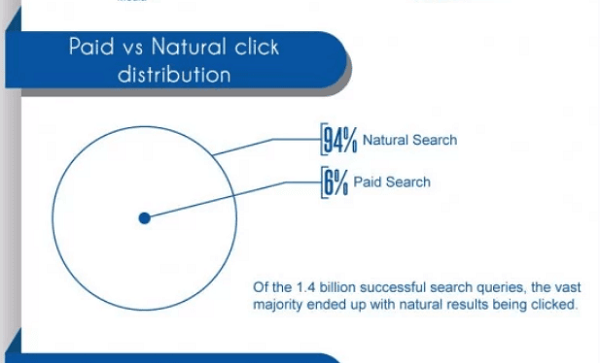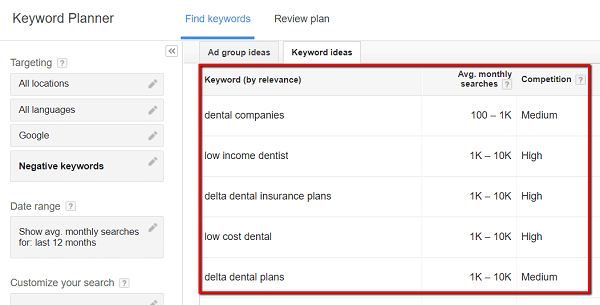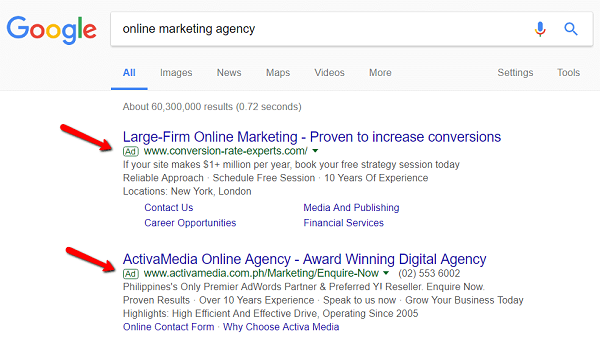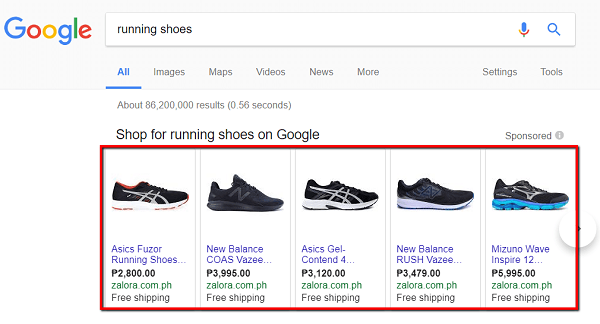Generating website traffic is an issue for every online businesses.
With so many brands competing for attention, a strong marketing plan is essential if you’re going to get ahead of the game.
We talk an awful lot about SEO, but we haven’t covered PPC as often. The truth is, they’re both great ways to generate traffic. We’re partial to organic traffic for a ton of reasons, but PPC shouldn’t be overlooked.
These marketing strategies aren’t for the short-term. SEO, in particular, may take weeks or months to generate returns. But it’s one of the best things you can do for your online business in the long run.
PPC can lead to quick results if used right. But that is a big “if” considering the cost in highly competitive markets.
Start small in order to avoid burning through your budget on a bad campaign. Experiment and be nimble first. Find something that works. Then, and only then, scale up!
This begs the question: what should budding businesses focus on first: SEO or PPC? Today, we’ll cover both the similarities and the differences between two.
Search Engine Optimization
SEO, Search Engine Optimization, is one of the more intimidating marketing tactics. Besides the cost, it can also take time to reap the rewards. If you decide to do it yourself, you probably won’t see daylight for weeks.
But don’t let this discourage you! SEO is still an essential pillar of online success. Consider the following stats for example…
- 93% of all web experiences start with a search engine – Search Engine People
- Google processes about 3.5 billion searches per day – Internet Live Stats
- 61% of marketers cite SEO as their go-to inbound marketing strategy – HubSpot
To get a bit more detailed about the advantages SEO can offer over PPC, let’s take a closer look.
Increased brand authority
Higher rankings in the SERPS will have a positive impact on your brand. According to some statistics, 94% of users skip search ads and head straight to organic results.

Image source: Smart Insights
If you’re occupying one of those top 3 slots in the SERPs (Search Engine Results Pages), users are more likely to see your content first. This leaves the impression that you’re a go-to authority in your industry.
Bigger ROI
While the initial cost of SEO can occasionally exceed a monthly PPC budget, it will often be more effective ROI-wise. In other words, you pay for every click-through in a PPC campaign. Organic clicks are 100% free, search visibility is the gift that keeps on giving. This is especially true if we’re accepting the research shown above that the vast majority of users tend to ignore the paid listings anyway.
Scope
In the paid search world, new keyword opportunities can arise at any time. But if you want to make the most of your investment, you’ll also need a strong organic presence.
Buying into new, competitive keyword markets isn’t a sustainable approach. Use a keyword research tool like the Google Ads Keyword Planner to get an idea of just how large or small your target market is.

SEO campaigns are typically all-encompassing to a degree. You won’t need to run paid promotion on each and every post you publish to see some returns.
With a viable internal link structure, you can increase the visibility of your website and brand. As we mentioned earlier, there is an initial cost for keyword optimization, but that part of SEO is usually a one-time thing.
Long-term sustainability
Once you have the top spot in your target SEO keywords, it can take awhile for competitors to overthrow you. In the meantime, you’ll enjoy all the benefits of being on top!
You will still have to allocate funds for SEO maintenance, but the costs should be less than what you paid during the initial 6 to 12 months of your campaign.
In comparison, the effectiveness of a PPC campaign is directly linked to the amount spent. If you decide to stop funding a PPC campaign, you’ll find yourself back to square one and all of that traffic will stop showing up.
Pay Per Click
PPC, pay per click, means that you’re essentially paying for every click that comes through to your website.
Think Facebook Ads, Google Adwords, and all sorts of banners and native content you’ll find across the web. To get inspired, check out these Google Ad examples that showcase how big brands have leveraged sponsored search in the recent past.
At first it may seem like PPC is a quicker way to get into SERPs. It is! You can start a campaign, throw some money at it, and find yourself at the top of the results.
But keep in mind, that while it does cut through the labor of SEO, you’ll literally only get what you pay for. Since high-demand keywords have steep bids, companies with deep pockets can quickly gain the upper hand and push you down to the bottom of the page.
PPC gets you measurable results fast, but that speed will come at a price. Share on XIt’s not all doom and gloom though! You should absolutely still carefully consider running PPC campaigns, and they’re critical to the success of many businesses (including our own!).
Flexibility
SEO strictly focuses on search engine results. But PPC allows you to become visible on other sites as well. Your placement depends on your ad type, budget, and target audience. Services like Adwords allow you to carefully manage where exactly your ads show up. This gives you more control over your campaigns.
Speed
As you might extrapolate, it’s also easy to quickly test new markets and audiences with modest PPC budgets. With SEO on the other hand, you’d have to commit serious time and energy to even dabble with exposing your brand to a new demographic.
If you play your cards right, you can gain instant exposure. The real challenge, however, is targeting the right search terms to get quality clicks. Keep in mind, the majority of search engine users avoid listings that have the word “ad” under them.

Product visibility
If you’re in eCommerce, PPC can help you make an impression with product listing ads. These placements show your product’s photo, price, name and purchase link.

You can get the same effect in SEO with rich snippets. But in PPC, the process is much faster and simpler. And if you set your bids right, your exposure in these product carousels will be all but guaranteed.
A/B testing
PPC allows marketers to take advantage of split testing. This works by letting you run multiple versions of your ad at the same time. By comparing their performance side by side, you can figure out which ad combinations work best. This helps you achieve higher CTRs, faster.
The Verdict
So, should your business focus on SEO or PPC?
Hopefully after reading this article, you’ll have decided that that’s the wrong question to ask in the first place. Most brands will be able to derive some serious value from both SEO and PPC campaigns.
A better question to ask, is how you should split up your online marketing budget between the two. As a small brand, consider setting a PPC goal that will generate enough profits to cover your SEO investments. Finding the balance is key for both short-term and long-term success.
We provide custom marketing solutions that combine SEO services and PPC management in just such a way.
Don’t forget: one easy way to side step the upfront cost of getting your feet wet with SEO is to choose our own performance-based SEO service. We provide all of our clients with the same guarantee: “If you don’t rank, you don’t pay!”.








